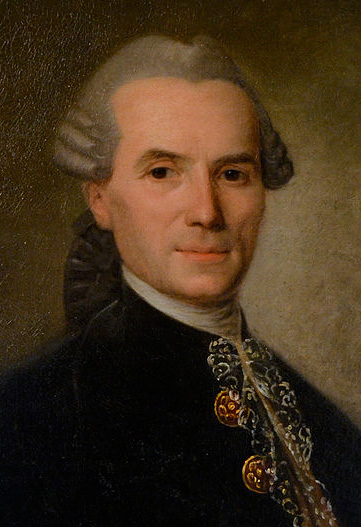| Profile | Major Works | Resources |
Jean Joseph Louis Graslin, 1727-1790.

Jean Graslin was a receiver-general of taxes in Nantes, one of the great French Atlantic commercial ports and so perhaps a Neo-Colbertiste by instinct.
Graslin is most famous for his criticisms of the Physiocrats. Graslin's anti-Physiocratic 1767 tract was submitted to an essay competition established by Turgot at the academy of Limoges on the incidence of taxation. The prize went to Saint-Peravy instead, but Graslin's critical essay was incisive enough to draw a response from Turgot (1767). Graslin particularly berated the Physiocrats' concept of national income in produit net terms, insisting instead that national income ought to be measured in total product terms. Graslin also insisted that the incidence of taxation did not necessarily fall on land rents, but could be shifted around to fall on consumers. His duel with the Physiocrats is followed up in his correspondence with the Abbé Baudeau (1776).
Unlike other French monetary theorists of the time, Graslin embraced the Quantity Theory, arguing that the value of money bears no relationship to the value of its metal. The total value of money, Graslin argued, is necessarily equal to the total value of goods, consequently, as the value of goods in aggregate is constant, then the value of a money depends solely on the quantity of money pieces.
Some economists regard Graslin as a member of the subjectivist proto-Neoclassical strand, for his insistence that the value of objects is not related to anything intrinsic in them, but to man and "increases and decreases with the needs of man, and disappears with him" (1767)
|
Major Works of Jean Graslin
|
|
HET
|
|
Resources on Jean Graslin
|
All rights reserved, Gonçalo L. Fonseca
